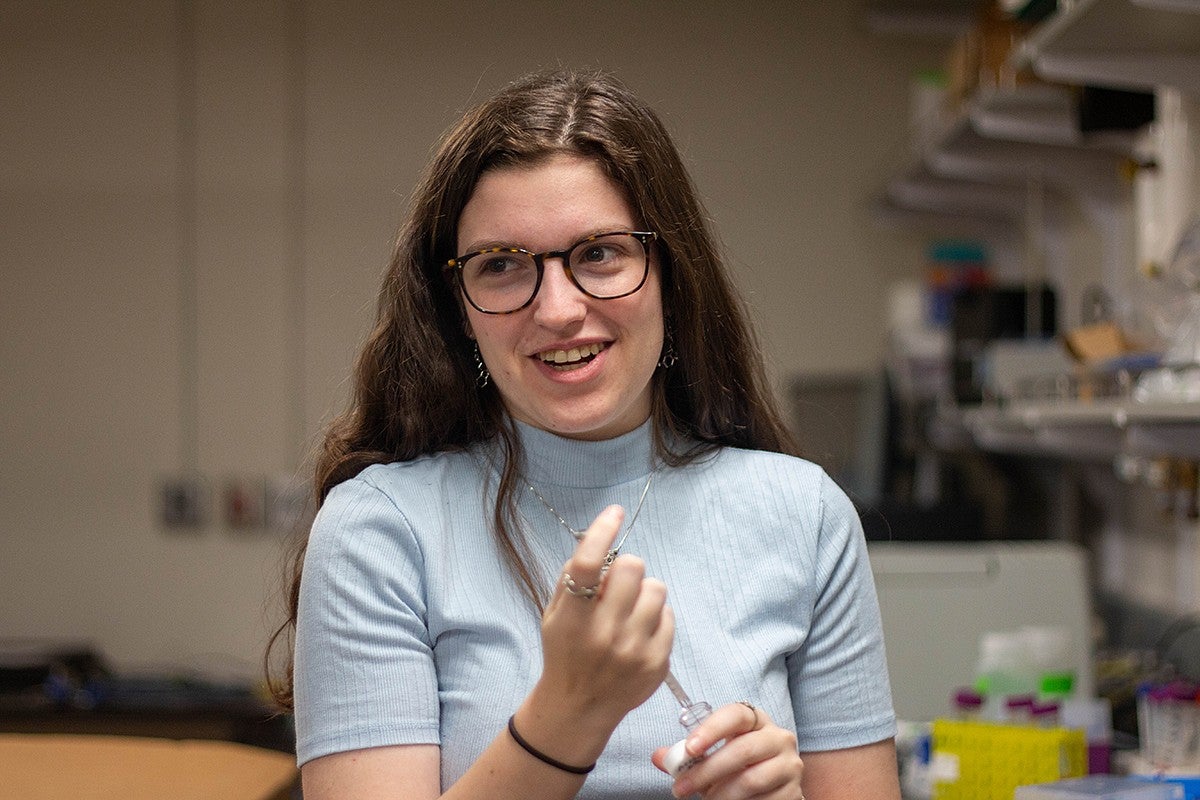
From potions to the Prell Lab
Thinking back to her sophomore year of high school, Lawren Paris recalls the moments that shaped her into a chemist. Originally wanting to be a teacher, she paid special attention to the most engaging instructors she had throughout her high school career.
One teacher in particular, who Paris says was the “human embodiment of Miss Frizzle” (the protagonist in the Magic School Bus cartoon), made science so engaging that she felt a calling to stick with it.
After three years of chemistry in high school and an introduction to forensic science through a career assignment, she’s never looked back. Using scientific methods for criminal investigation, forensic scientists often provide expert testimony in legal courtrooms. Paris knows that’s her future.
“If I can figure out how to make the science that I’m doing a little bit easier to understand for the juries and judges and lawyers who don’t understand science, then that would be a really valuable skill,” Paris says.
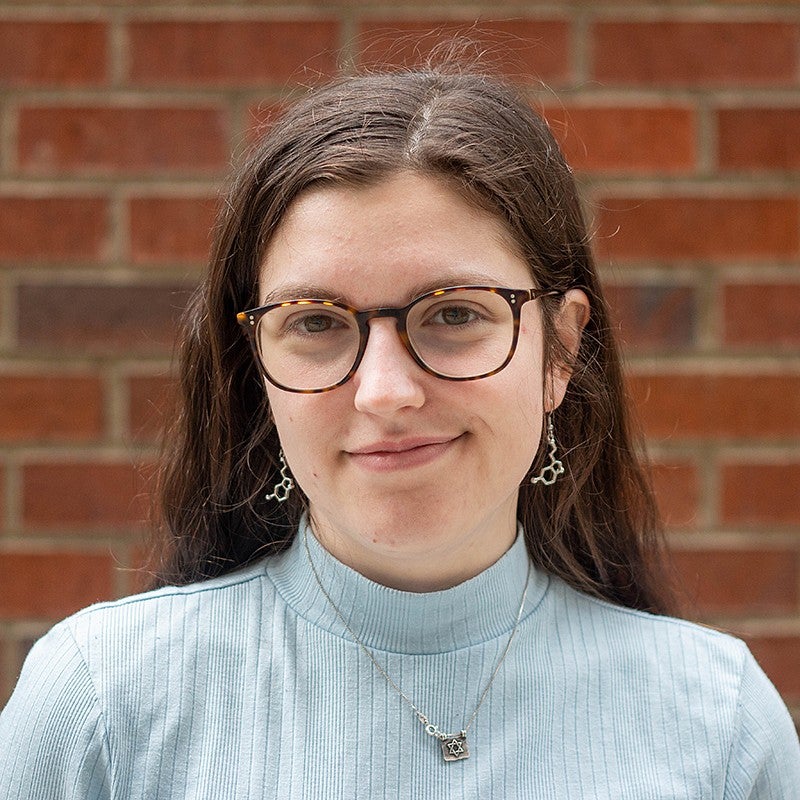
Lawren Paris
Major: Chemistry
Minor: Science communication and forensic anthropology
Thesis: “Investigating Vibrational Heat Capacities of Gas-Phase Biomolecular Ions For Use in Determining Ion Thermochemistry”
Describe your experience at CHC: Unique, fulfilling, challenging
Your advice for the thesis project: Start early and find other people to write with. Keeping each other motivated is a great way to reach your deadlines. Let go of your perfectionism, too. It needs to be good, but it doesn’t need to be perfect.
This summer, I can’t wait for: Going on road trips with my best friends.
What I’ll miss most about the CHC: The people, especially all of my friends and the Oregon Marching Band. I’ll also miss getting to take classes about so many different topics.
I’m grateful for: My family and friends who have supported me throughout my time at UO, and my wonderful faculty mentor Jim Prell for providing me with opportunities to learn and share my research.
Where I’m headed next: I'll be getting my master’s in forensic science at the University of New Haven in Connecticut.
Her desire to help others understand the world around her has followed her through her time at the Clark Honors College. She graduates as a chemistry major with minors in science communication and forensic anthropology. Her thesis, “Investigating Vibrational Heat Capacities of Gas-Phase Biomolecular Ions for Use in Determining Ion Thermochemistry,” is the culmination of her four years of participation in the Prell Lab.
Experimentation from a young age
Paris grew up in Cedar Hills, Oregon, where creative play fostered her curiosity. When she wasn’t thumbing through a picture book, she and her sister, Leah, would make potions in the backyard. Whether it was over an imagined bubbling cauldron or a Smithsonian Institution natural history book, she always wanted to understand how things work.
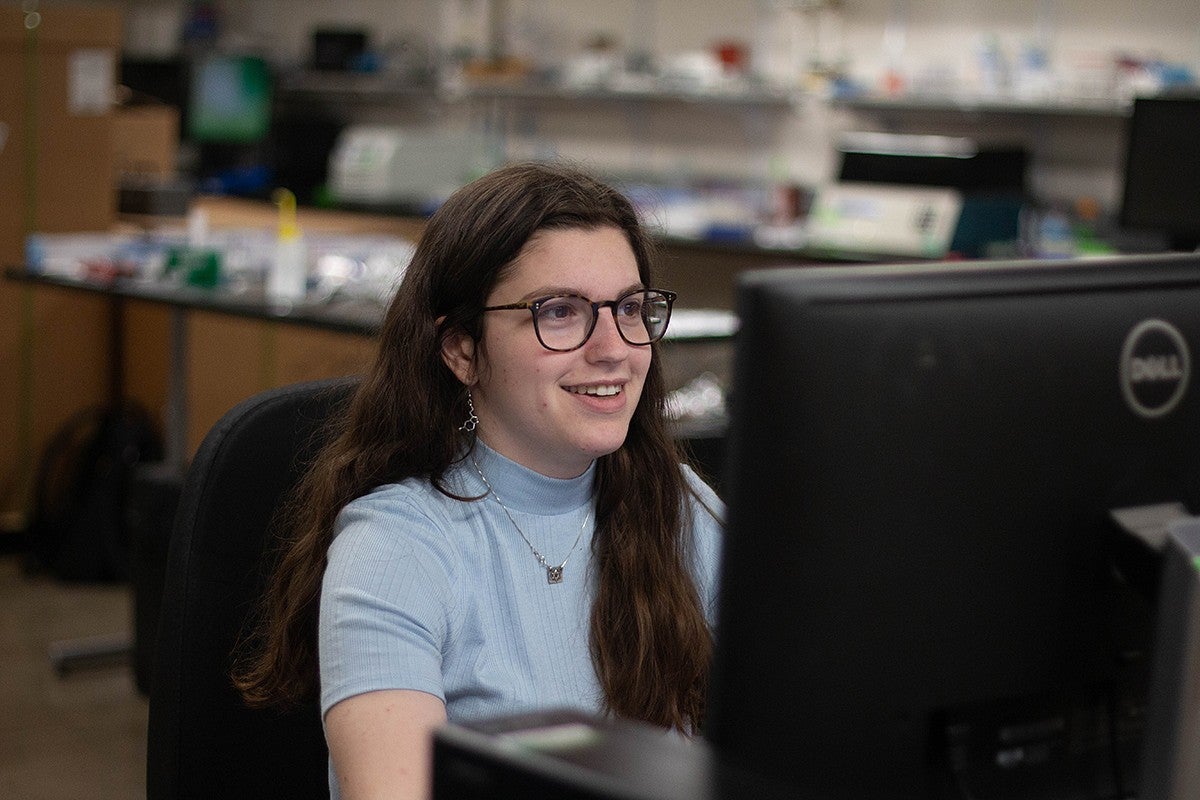
Thanks to a father who believed it was important for his daughters to understand how things work in the world, Paris stayed curious about nearly everything around her, from stoplights to plumbing and beyond. “When I was maybe seven, I learned about how a toilet works so I could fix it,” she says. “I’ve learned how to fix half the stuff in my house.”
As head of her high school’s student tech support team, when nothing demanded her immediate attention, she would sit with her peers and take apart old computers, learning something new in the process about motherboards and CPUs.
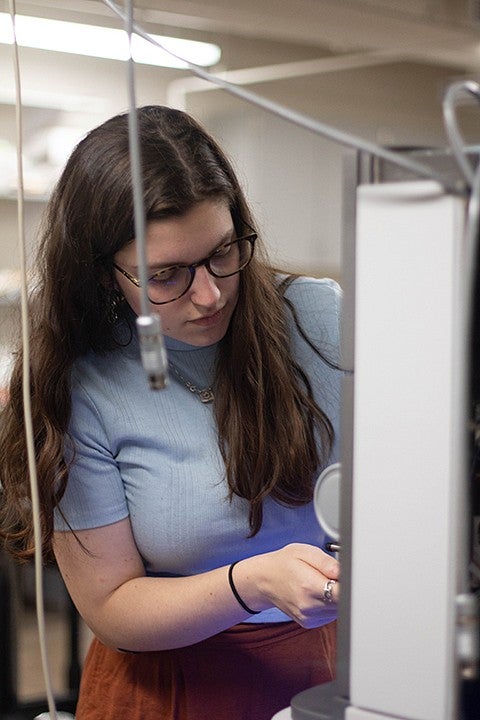
After deciding on the Clark Honors College for its close proximity to home and cutting-edge natural science research, Paris quickly joined the Prell Lab despite not being able to attend in person. Though the pandemic put the world on pause, it didn’t stop her from beginning her physical chemistry research when most students don’t take physical chemistry until their junior year of undergrad.
“It was surprising to have someone have the energy and want to join during COVID because it was so feared,” Jim Prell, Paris’ thesis advisor and associate professor of chemistry and biochemistry overseeing the Prell Lab. “She also had the foresight to see that if she was going to do something in a group like ours, it was going to take multiple years to do.”
Writing the answer key
Continuing her fascination with structure and function, Paris’ research in the Prell Lab was centered around discovering new ways to learn about the structure of proteins and other biological macromolecules. By applying quantum and statistical mechanics, she helped discover the answers to long-puzzling questions about biology that have stumped scientists for years.
“You’d think this is something that everybody in our field knows the answer to because it sounds like kind of an old type of a question,” Prell says. “But it turns out, it’s very, very, very hard to figure these questions out.”
According to Prell, scientists need to understand how the structure of proteins is affected by heat so biologists and chemists can design new pharmaceuticals to improve health and treat diseases. “What she did is very valuable information for our field,” Prell says of Paris’ research.
Prell says it’s commonplace for undergraduate students to get in the reflex of checking their textbooks for the answers, learning about things that have already been discovered. For Paris, it’s been different. “I can tell when Lawren realized these answers were absolutely not at the back of the book. She’s writing the answers that people are going to look up in the future.” Prell says.
When Paris isn’t in the lab or taking classes, she stays busy playing the clarinet in the Oregon Marching Band and practicing her Jewish faith. Between Shabbat dinners and band boot camps, she brings dedication and enthusiasm to everything she does. “This is someone who’s willing to put in the time for things because they understand the rewards that come out of it,” Prell says. “That was very similar to how she approached research, which was awesome.”
Her found family at the Prell Lab will have a hard time replicating the warm environment she fostered once she’s graduated. “She was always there to put a smile on your face and be encouraging and everything,” Prell says. “We’re all really going to miss Lawren because she’s such a good friend and collaborator with everybody in the lab.”
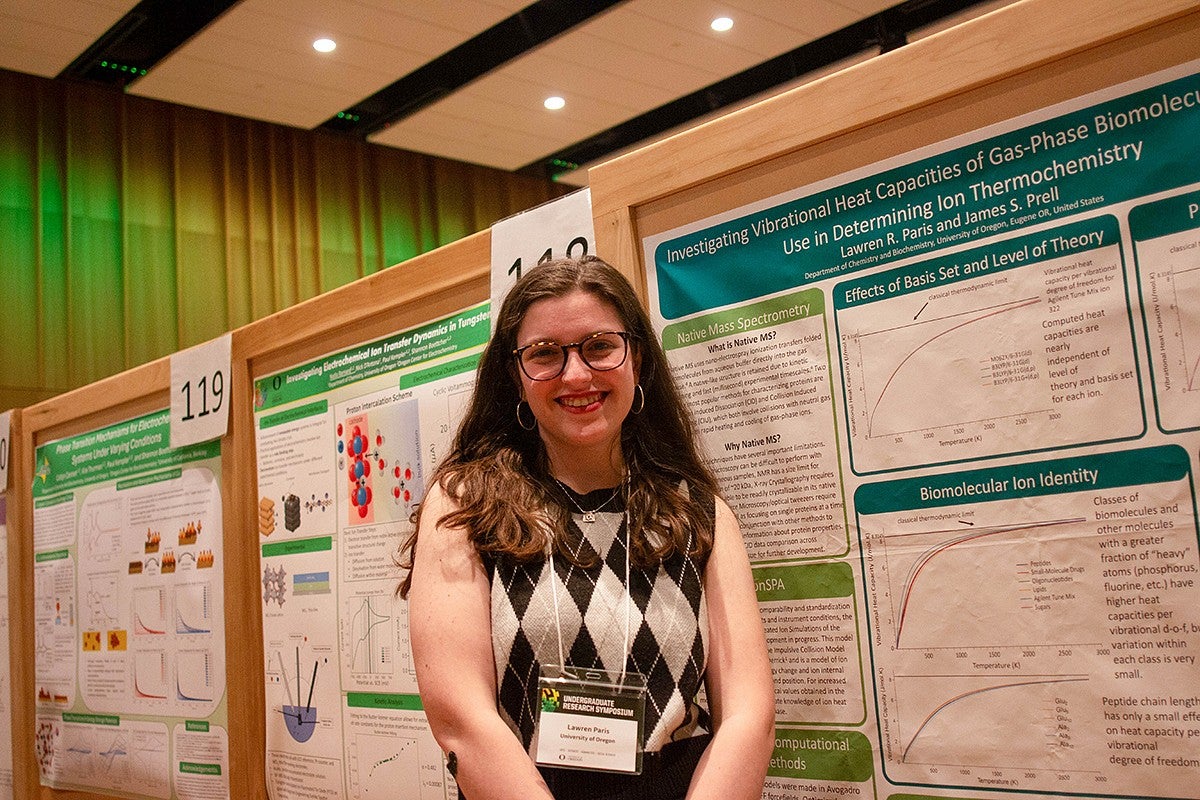
Today, Paris is gearing up for what comes next. With her thesis defense complete, she will be the first author of a paper on her research that she and Prell will be submitting to the “Journal of the American Society for Mass Spectrometry.” She says the culmination of her research work has been “really interesting and fulfilling” and that she’s hopeful that her contributions to her field will take her far.
Paris will attend the University of New Haven in the fall, where she will pursue a master’s in forensic science. She dreams of one day working for the FBI or the Centers for Disease Control so that she can continue to help people understand complicated science topics, whether that’s in a lab or in front of a jury.

